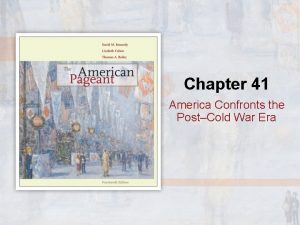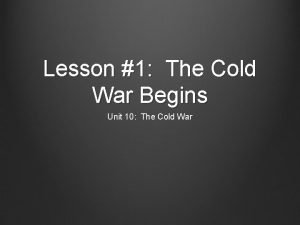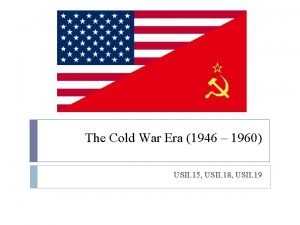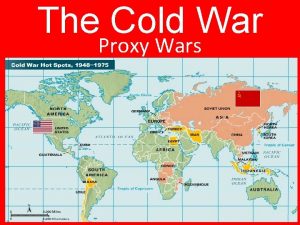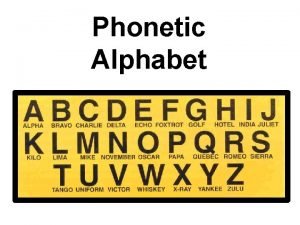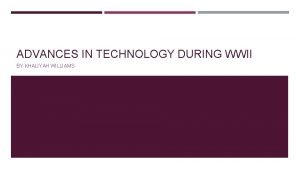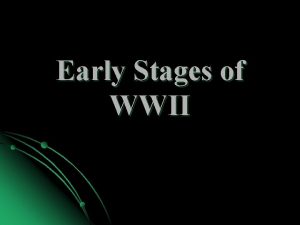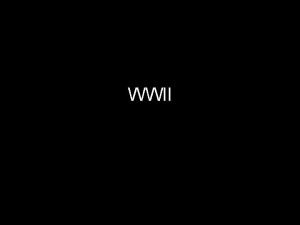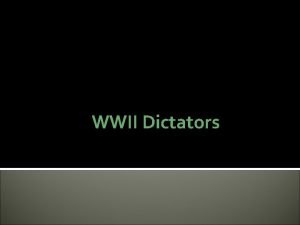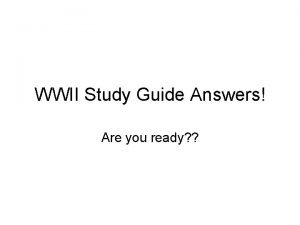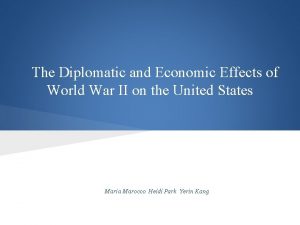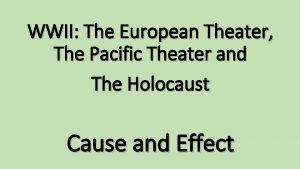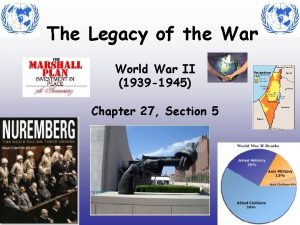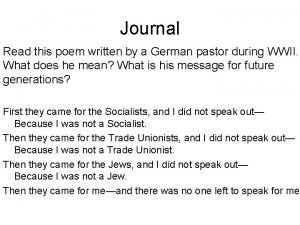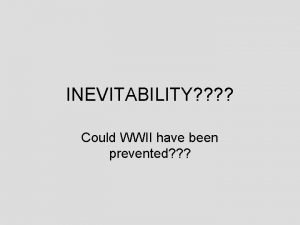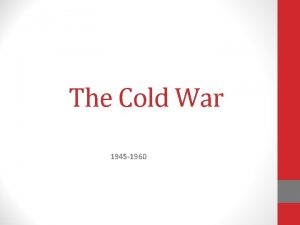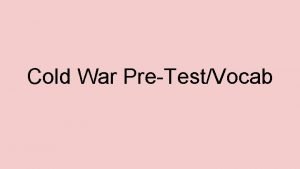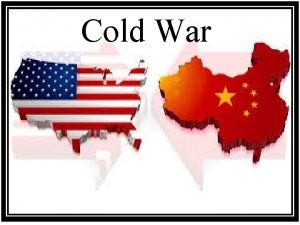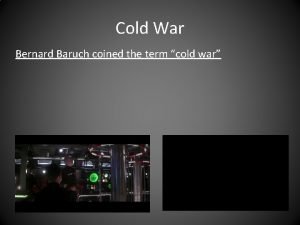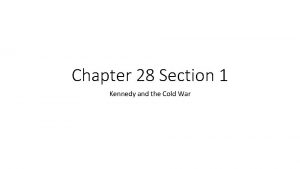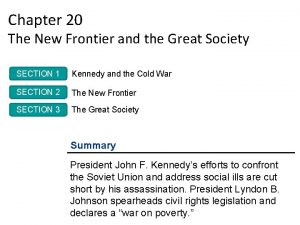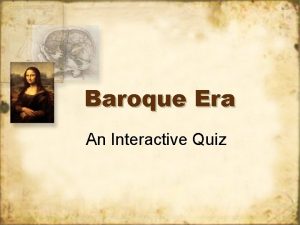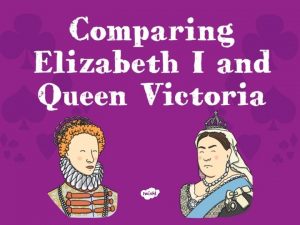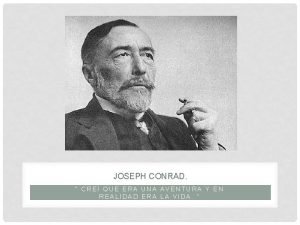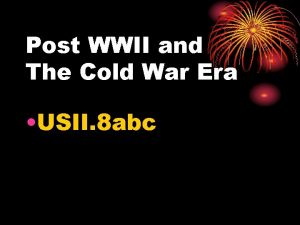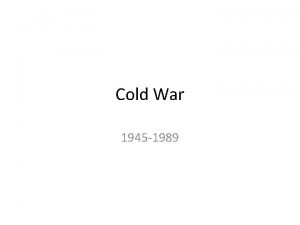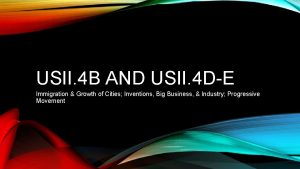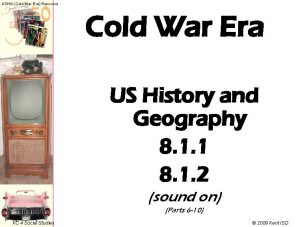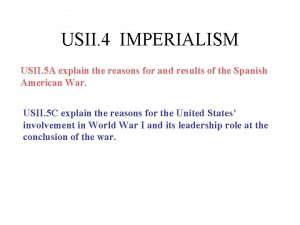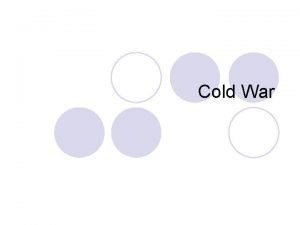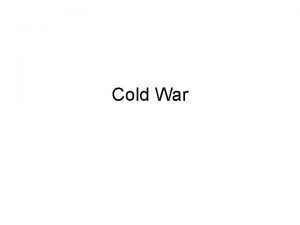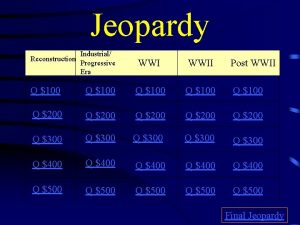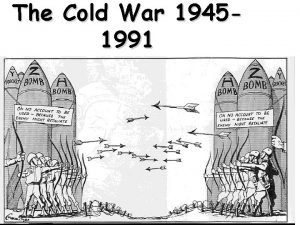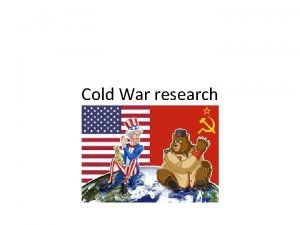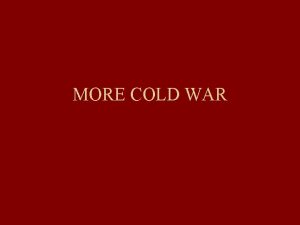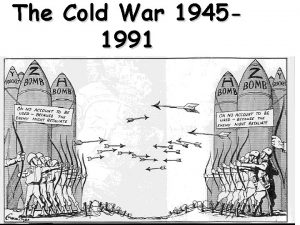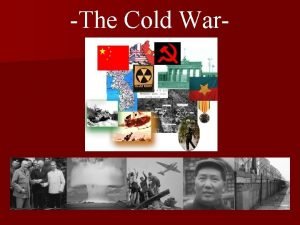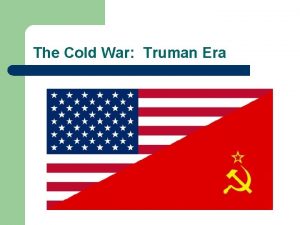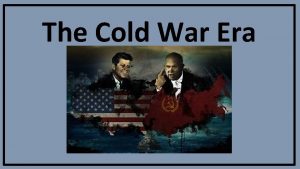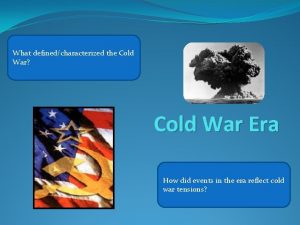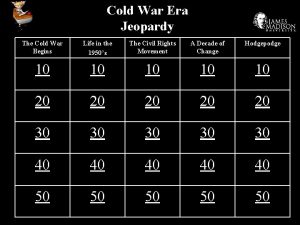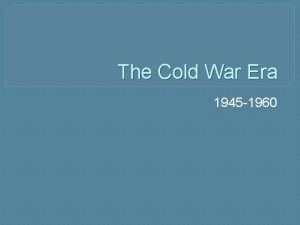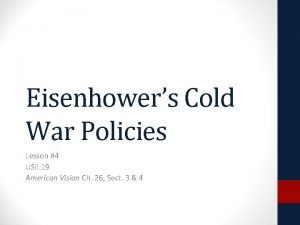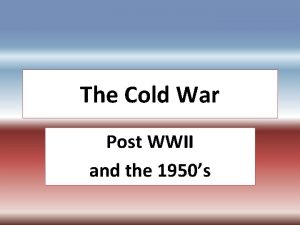Post WWII and The Cold War Era USII



























- Slides: 27

Post WWII and The Cold War Era • USII. 8 abc

The United States & Soviet Union • Emerged as SUPERPOWERS after WWII

The United Nations • An international organization that debates world issues and tries to keep peace • Formed near the end of WWII to prevent future wars

After WWII Japan: • Adopted a democratic form of government • Resumed self-government • Became a strong ally of the United States

After WWII • The U. S. felt it was in its best interest to rebuild Europe to prevent political and economic instablililty

Containment • The policy or process of preventing the expansion of a hostile powers; a policy of blocking communist expansion.

Marshall Plan • U. S. plan to provide massive economic aid to Western Europe after WWII and to stop the spread of communism Named after George C. Marshall who made the announcement

Germany was partitioned into: West Germany- Became democratic Resumed self-government (after a few years of American, French, and British occupation) East Germany. Remained under domination of Soviet Union & did not adopt democratic institutions

Capitalism • An economic system based on private property and free enterprise • U. S. A. has this type of system

Converting from: Wartime to peacetime • Following WWII, Americans prospered due to an expanding economy stimulated by America’s involvement in the war

Reasons for rapid growth of American economy following WWII • With rationing over, business converted from production of war materials to consumer goods • Americans purchased goods on credit

Examples of businesses converting from the production of war materials to consumer goods: • Combat boots to tennis shoes • Fighter jets to passenger airplanes • Parachutes to nylon stockings • Production of war vehicles to family automobiles

More reasons for rapid growth of American economy following WWII: • Workforce went back to men • Women returned to family duties • Labor unions merged & became more powerful • Workers gained new benefits and higher salaries

A “Booming” economy: • As economic prosperity continued and technology boomed, the next generation of women re-entered the labor force in large numbers

The Cold War • Tension between the USA and the Soviet Union without actual fighting

Origins of Cold War • Differences in goals and ideologies between the U. S. and the Soviet Union • The U. S. : Capitalist and Democratic • The Soviet Union: Dictatorial and Communist

During the Cold War the Soviet Union controlled: • Eastern European countries

NATO • North Atlantic Treaty Organization • Stated that “an armed attack against one or more of (the member nation) shall be considered an attack against all” • Military alliance formed to guard against Soviet attack

Warsaw Pact • Counterpart of NATO • Had military force that the Soviet Union controlled

The Korean War • ended in a STALEMATE

China • Aided North Korea during the Korean War

Domino Theory • If one country is taken over by communism then all surrounding countries fall to communism • Coined by President Eisenhower referring to the spread of communism into South Vietnam

The Vietnam War • Americans were divided over whether the U. S. should be involved in Vietnam. • The conflict ended in a ceasefire agreement in which U. S. troops withdrew

The Cuban Missile Crisis • An event during the Cold War that brought the USA and the Soviet Union close to a nuclear war • The Soviet Union placed missiles in Cuba • The USA responded by a naval blockade & the Soviet Union turned back

The collapse of the Soviet Union and Communism in Europe • The destruction of the Berlin Wall • The break up of the Soviet Union into independent countries

America’s New Challenges AFTER the Cold War • Role of U. S. military involvement • Environmental problems • Global trade and jobs • Diseases • Energy

FINALLY!!! You’re finished! • Go home and STUDY, STUDY!
 America confronts the post-cold war era
America confronts the post-cold war era Lesson 1 the cold war begins
Lesson 1 the cold war begins Political cartoon of the iron curtain
Political cartoon of the iron curtain Proxy wars cold war
Proxy wars cold war Phonetic alphabet wwii
Phonetic alphabet wwii Advances in technology during wwii
Advances in technology during wwii What did the nye committee do
What did the nye committee do Wwii picture
Wwii picture Wwii picture
Wwii picture Ww2 study guide answer key
Ww2 study guide answer key Source analysis
Source analysis 1950s television history
1950s television history 1500 dead in hawaii congress votes war
1500 dead in hawaii congress votes war Reasons for world war 2
Reasons for world war 2 Germany map
Germany map Wwii
Wwii Could wwii have been prevented
Could wwii have been prevented Wwii test review
Wwii test review Apush wwii dbq
Apush wwii dbq Summary of the cold war
Summary of the cold war Pretest communism and the cold war
Pretest communism and the cold war Communist and capitalist countries cold war
Communist and capitalist countries cold war Domino theory
Domino theory Chapter 28 section 1 kennedy and the cold war
Chapter 28 section 1 kennedy and the cold war Chapter 20 section 1 kennedy and the cold war
Chapter 20 section 1 kennedy and the cold war Baroque music quiz
Baroque music quiz Elizabethan vs victorian
Elizabethan vs victorian Creí que era una aventura y en realidad era la vida
Creí que era una aventura y en realidad era la vida
